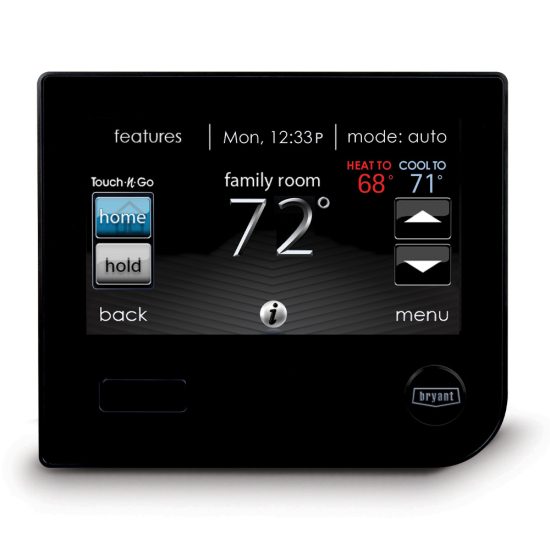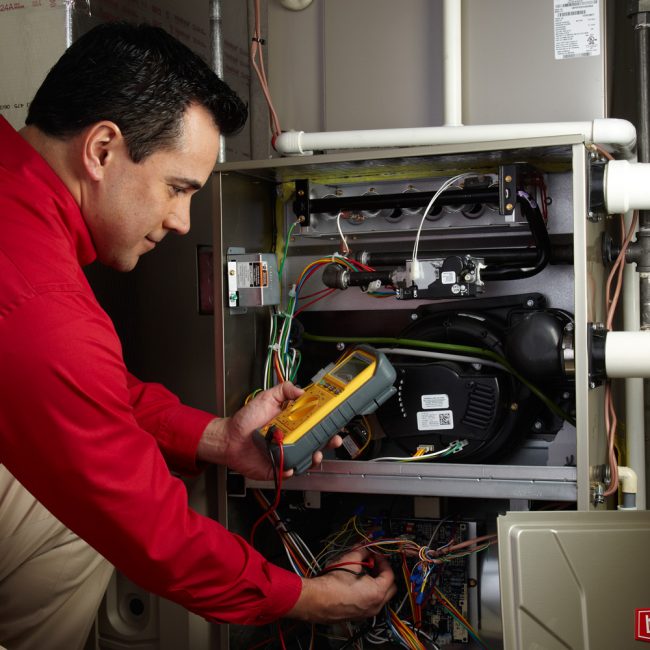
HVAC Component Replacements or Upgrades
Whether in an emergency situation, a planned or recommended upgrade or replacement, we can help you select the best option for your specific situation. Not all systems work as efficiently in all homes, and often the latest multi-stage systems may not be the best or most efficient based on your home’s size, age, usage, and importantly, the existing distribution system. We represent leading manufacturers in the industry. After reviewing your existing system, we will recommend the best options for your personal comfort and safety.
For reference, while every unit and usage is different, on average, with proper maintenance and care, you can typically expect fifteen to twenty years of service from most heating and air conditioning systems.
Importance of Annual Maintenance
Annual maintenance of your heating and cooling system can be as important as an annual visit to your doctor or dentist. Much like those professionals, our technicians evaluate your system and components to ensure they are working properly and efficiently. If your equipment is over twenty years old, it may be getting to the end of its useful life. Upgrading to a more efficient unit may be the best option. While your comfort is important, your safety is always a higher priority. An older furnace may not just be inefficient, it may cause a dangerous carbon monoxide health risk.
Furnace Service
Whether in an emergency situation, or a planned or recommended upgrade or furnace replacement, can help you select the best option for your specific situation. Not all systems work as efficiently in all homes, and often the latest multi-stage systems may not be the best or most efficient based on your home’s size, age, usage, and existing ductwork. We have multiple brands and furnaces to recommend the appropriate option whether natural gas, oil, or propane.
Furnace Maintenance
All HVAC manufactures recommend annual maintenance on their equipment. Skipping annual service may cause your system to fail, and it always seem to be at the worst time, on a holiday, late night or weekend. Cleaning the burner assembly, filter/media replacement, lubrication, safety component inspections, analyzing flue gases, are important aspects of an annual program. Ignoring maintenance will cause premature furnace failure, but when completed annually, will keep your system running more efficiently, safely and for a longer period of time.
Furnace Installation
A furnace is one of your home’s largest and most important systems. It is really the heart of your entire HVAC system. Unlike an air conditioning failure where opening a window and a fan can help remedy the situation in the short term, a non-working furnace can have disastrous effects in the cold winter months including frozen pipes or potentially deadly health issues from carbon monoxide concerns.
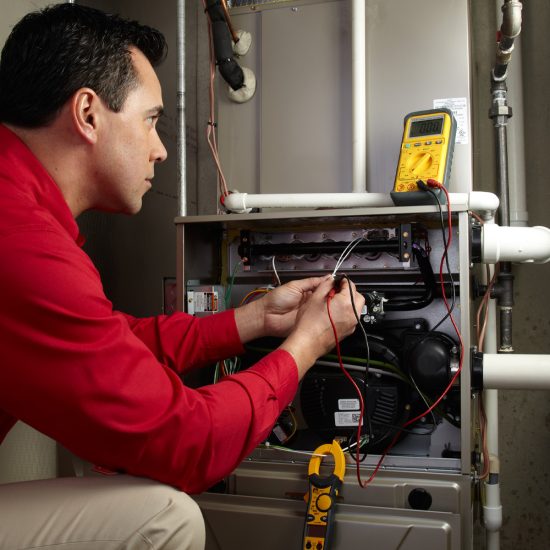
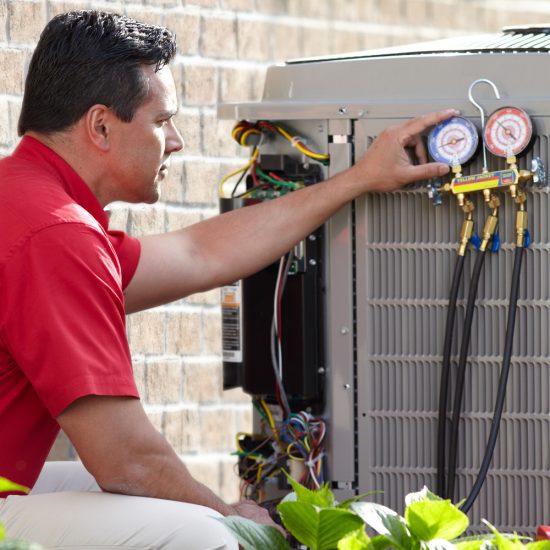
Air Conditioner Service
An air conditioner's condenser, evaporator and filter/media need regular maintenance for the system to function effectively and efficiently throughout its years of service. Neglecting necessary maintenance ensures a steady decline in air conditioning performance while increasing your energy cost.
Air Conditioner Maintenance
During an air conditioner service, the condensing unit is cleaned, condenser coil washed, electrical components inspected. Evaporator and condensate drain line are inspected and cleaned if necessary, filter/media replaced. The system is operated, refrigerant is checked for proper system charge. Restricted/dirty condenser and evaporator coils, air filters and incorrect refrigerant charge all impact your systems performance and life expectancy.
Air Conditioner Replacement
In the event of an air conditioning failure, our technicians will review options to either repair or the replacement of your existing unit. There are many factors that go into the decision to repair or replace, including the age of the unit, cost of repair versus replacement, as well as operating conditions which may have caused the failure.
Heat Pumps
Despite the name, heat pumps do not generate heat, they work by moving heat from one place to another. Through the use of a reversing valve, a heat pump can change the flow of refrigerant to either heat or cool a home. Air is blown over an evaporator coil, transferring heat energy from the air to the refrigerant. That heat energy is circulated in the refrigerant to a condenser coil, where it is released as a fan blows air across the coil.
While heat pumps are more common in milder climates, where the temperature does not typically drop below freezing, in Wisconsin, they can also be combined with furnaces, often called a dual fuel/hybrid system, and can be very energy efficient.
Heat Pump Maintenance
Much like a furnace or air conditioner, a heat pump is a mechanical piece of equipment, and regular maintenance is important to ensure proper and efficient operation. Heat pump maintenance is similar to an air conditioning maintenance with the added inspection and testing of the reversing valve.
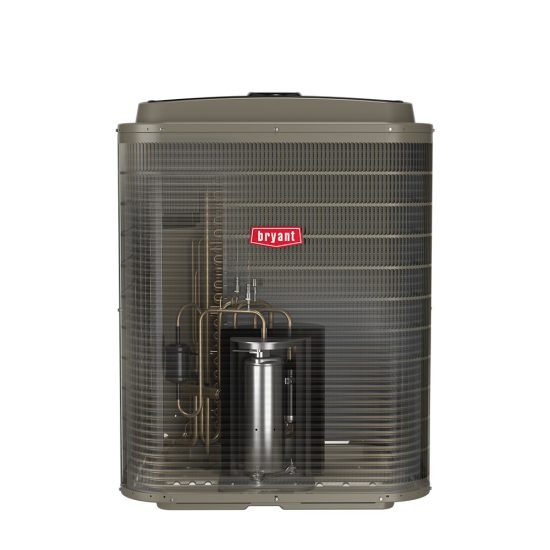
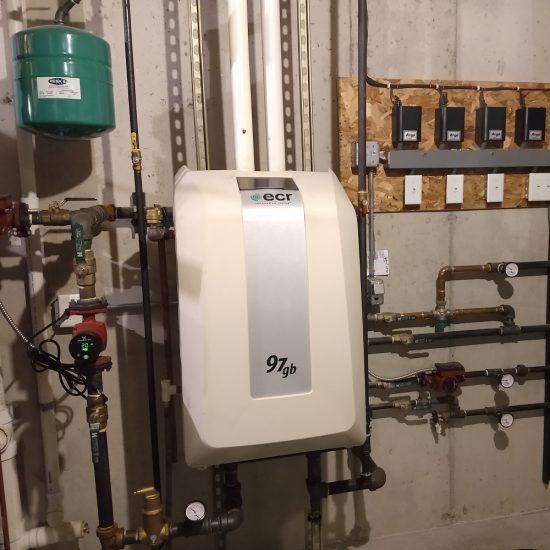
Boiler/Hydronic Service
Hydronic heating systems use hot water or steam generated by a boiler to transfer warmth inside homes and commercial spaces. This contrasts with forced air systems that work by blowing heated air into a space to displace cooler air. Hydronic systems transfer heat from heated water or steam to cast-iron radiators, copper fin/tube element baseboard or pex in-floor tubing depending on the system.
Today modern systems circulate heated water through a series pex tubing circuits installed under the flooring. These systems keep the floor warm while heating the house. Regardless of type or design, most systems use a combustible fuel source to produce heated water or steam and subsequently need annual maintenance to avoid system failures.
Boiler/Hydronic Maintenance
While different boiler types will have different maintenance requirements, all need annual maintenance. Burner assemblies cleaned, safety controls inspected and tested, pressure relief valves tested, flue gases analyzed. Zone valves, circulators and relays are inspected and tested to ensure proper operation.
Temperature Control
Communicating controls or the use of a thermostat is your direct line of communication with your HVAC system. It ensures that the climate in your home is comfortable within the heating and cooling limits you desire.
There are different types of thermostats from simple manual designs to programmable and smart/WIFI thermostats. Many programmable and smart thermostats have been designed with features and learning capabilities that can lead to energy savings while keeping your home comfortable and cost efficient.
Thermostats Replacement
